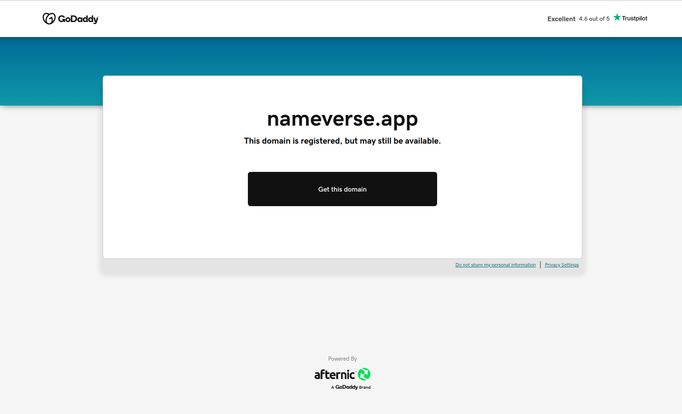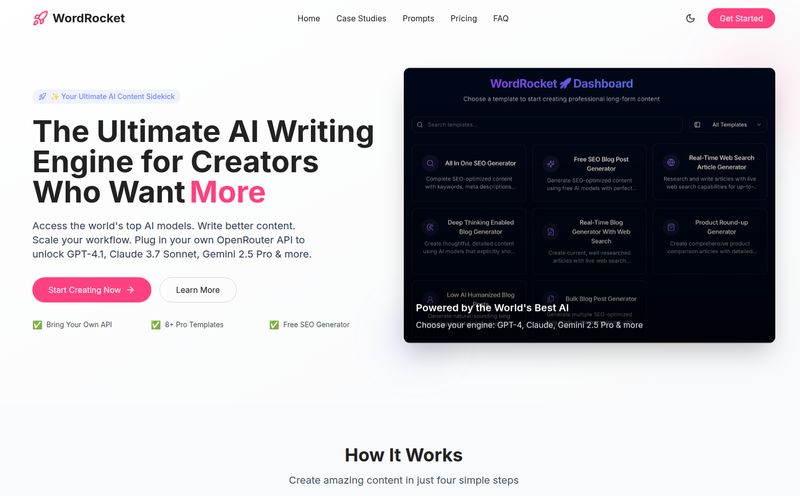The whole Web3 space, for all its revolutionary talk, can be incredibly clunky. We've all been there—trying to send some crypto and staring at a wallet address that looks like a cat walked across the keyboard. It’s a mess. It's intimidating. And it’s a huge barrier for anyone who isn't already deep down the rabbit hole.
So, whenever a project comes along that tries to sand down those rough edges, my ears perk up. That's what led me to AZERO.ID. On the surface, it looks like another crypto domain service, sort of like the ENS (Ethereum Name Service) that many of us are familiar with. But as I started digging, I realized there's a bit more going on here, especially with its deep integration into the Aleph Zero ecosystem.
I’ve spent years navigating the worlds of SEO, traffic, and now, the wild frontier of Web3 marketing. I’ve seen projects promise the world and deliver a postage stamp. So, is AZERO.ID the real deal or just more noise? Let's get into it.

Visit AZERO.ID
First Off, What Exactly Is AZERO.ID?
Think of it like this: AZERO.ID is trying to be the GoDaddy or Namecheap for the Aleph Zero blockchain. It gives you a way to swap that long, ugly alphanumeric address for a clean, human-readable name. Instead of 5Gz...d8K9, you could just be yourname.azero (I'm assuming the TLD, the actual platform will specify!). Simple, right?
But it's not just about a vanity address. It's about building your digital identity on a specific network. Aleph Zero is a fascinating blockchain, known for its focus on enterprise-grade security and privacy, which makes it a pretty solid foundation for something as important as your online identity. The platform is operated by a group called Scio Labs, which adds a layer of professional oversight that you don't always see with more decentralized, anonymous projects.
So you get a simple name that plugs into the entire Aleph Zero world. That’s cool. But the feature that really caught my eye was the staking.
Beyond the Domain: Staking on the AZERO.ID Validator
This is where things get interesting. AZERO.ID isn't just selling you a name; they're inviting you to participate in securing the network. They run their own validator node, and you can stake your AZERO tokens with them to earn rewards. For anyone holding AZERO, this is a pretty compelling proposition.
I've staked on dozens of platforms, and I'm always looking at three things: security, uptime, and fees. Here's how they claim to stack up.
Security and Uptime Claims
They toss around the term "industrial-grade security," which sounds a bit like marketing fluff, but given Aleph Zero's own security-focused architecture, it's believable. The real gem here is the 100% uptime promise for their validator node. Anyone who has ever staked knows the pain of a validator going down. It means you stop earning rewards, and in some networks, you can even get penalized (slashed). A 100% uptime record is the holy grail for stakers. It means peace of mind and consistent returns. That’s a big, big deal.
Let's Talk About Fees
AZERO.ID boasts low commission fees. This is crucial. A validator's commission is the cut they take from your staking rewards for running the hardware and doing the work. A few percentage points might not sound like much, but over a year, high fees can seriously eat into your profits. Low fees mean more of the rewards end up back in your wallet. It's as simple as that.
"In the world of passive crypto income, every fraction of a percent matters. Low fees and high uptime aren't just features; they're the entire game."
Getting Your Hands Dirty: The Staking Process
Okay, so here's the part where we need to be honest. Staking with AZERO.ID isn’t as simple as clicking a button on Coinbase. It’s non-custodial staking, which is great for security (you keep control of your coins), but it comes with a few extra steps.
You’ll have to go through a process of "bonding" your tokens and then "nominating" the AZERO.ID validator. This is all done through the main Aleph Zero portal, azero.dev. If you're new to the Polkadot/Substrate ecosystem (which Aleph Zero is built on), this might feel a little alien at first. The interface isn't the most beginner-friendly thing I've ever seen. It’s functional, but not exactly beautiful.
This is probably the biggest hurdle for newcomers. The reliance on the external `azero.dev` portal means the user experience isn't fully contained within the AZERO.ID platform itself. However, they seem to be aware of this, as they provide a step-by-step tutorial to walk you through it. A little guidance goes a long way, and it shows they're thinking about user onboarding, which I appreciate. A lot of projects just throw you in the deep end.
What's the Price Tag on a Web3 Identity?
So, how much does an AZERO.ID domain cost? Well, there's no clear pricing page. And that's pretty standard for these types of services. The "price" is usually a combination of a registration fee (paid in AZERO tokens, often based on the length of the name) and the network's transaction fee (gas).
My advice? Don't just budget for the name itself. Always have a little extra AZERO in your wallet to cover the gas fees for the registration and any other interactions, like setting up your staking. The costs can fluctuate with network activity, so it's always best to check the platform directly for the most current rates when you're ready to buy.
My Final Take: Is AZERO.ID a Smart Move?
After looking it all over, I'm cautiously optimistic. AZERO.ID is building a genuinely useful piece of infrastructure on a promising L1 blockchain. It solves a real problem—clunky wallet addresses—while also providing a reliable, high-uptime staking service for AZERO holders.
Who should jump on this? If you're already invested in the Aleph Zero ecosystem, or if you're a believer in its long-term potential, grabbing an AZERO.ID seems like a no-brainer. It's a way to solidify your presence and put your tokens to work. It’s for the person who wants to be an early adopter in a new digital neighborhood.
Who might want to hold off? If you're a total crypto beginner, the multi-step staking process might be a bit much. It could be worth waiting until the user interface becomes more integrated or until you're more comfortable with concepts like bonding and nominating.
For me, the combination of a core utility (digital identity) with a strong passive income component (staking) is a winning formula. It’s not just a shiny new object; it’s a tool. And in the often-chaotic crypto market, tools that provide real utility are the ones that tend to stick around.
Frequently Asked Questions about AZERO.ID
Do I need AZERO tokens to use AZERO.ID?
Yes, absolutely. Since AZERO.ID is built on the Aleph Zero blockchain, you'll need AZERO tokens to pay for both the domain registration and any associated network transaction fees. If you plan to stake, you'll obviously need AZERO for that as well.
Is staking with the AZERO.ID validator safe?
The staking process is non-custodial, meaning you never give up control of your private keys. The main risk in staking is your chosen validator getting penalized (slashed) for bad behavior or excessive downtime. AZERO.ID's claim of 100% uptime and industrial-grade security is designed to minimize this risk, making it one of the safer options within the ecosystem.
Can I use my AZERO.ID domain like a normal website?
Not in the traditional sense, no. A Web3 domain like this doesn't point to a server with a WordPress site. Instead, it acts as a shortcut for your wallet address, and in the future, it could point to decentralized storage (like IPFS) or other Web3-native profiles. Think of it more as a username for the blockchain than a traditional .com address.
What's the relationship between AZERO.ID, Aleph Zero, and Scio Labs?
Aleph Zero is the underlying blockchain network. AZERO.ID is a service (a dApp) built on top of that network. Scio Labs is the development team that operates and maintains the AZERO.ID platform and its validator node.
Final Thoughts
The move toward human-readable names and seamless digital identities is a critical step for Web3's mass adoption. Projects like AZERO.ID are laying the groundwork for a more user-friendly and intuitive internet of value. While there are still some usability hurdles to overcome, the combination of identity management and a high-quality staking service makes it a compelling project to watch in the growing Aleph Zero ecosystem. It’s more than just a name, it's a foothold in what could be a very important part of the decentralized future.
References and Sources
- AZERO.ID Official Website: https://azero.id/
- Aleph Zero Foundation: https://alephzero.org/
- Aleph Zero Staking Dashboard: https://azero.dev/



